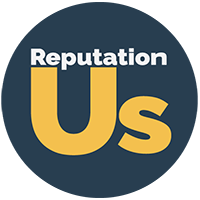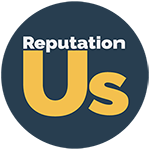Today, RepUs published its TEN REPUTATION RISKS AND IMPACT FOR 2025. Click HERE to download entire report.
Corporate reputational risks are rapidly evolving, and as of now, the top ones include a mix of longstanding challenges and emerging concerns driven by digital transformation, regulatory scrutiny, and shifting societal expectations heading into 2025. Here are some of the most prominent reputational risks and impact that ReputationUs identified that will need to be addressed in the coming year:
RISK 1: DATA PRIVACY & CYBERSECURITY
Threat: Cyberattacks and data breaches remain at the forefront as organizations face increasing challenges with the rise of sophisticated cyber threats, including ransomware, phishing, and insider threats.
Impact: High-profile breaches not only harm customer trust but also can lead to regulatory penalties and operational disruptions
RISK 2: ENVIRONMENTAL, SOCIAL and GOVERNANCE (ESG) CONCERNS
Threat: Stakeholders, including investors, customers, and employees, demand greater accountability on climate action, social responsibility, and ethical governance.
Impact: Companies failing to meet ESG expectations risk public backlash, divestments, and difficulty attracting talent. Greenwashing accusations, where companies are perceived as overstating their ESG efforts, can be particularly damaging.
RISK 3: REGULATORY COMPLIANCE & ETHICAL VIOLATIONS
Threat: Increased regulatory scrutiny on matters like data usage, financial practices, and consumer rights exposes companies to fines and legal repercussions.
Impact: Violations of regulations such as the GDPR, anti-bribery laws, or securities regulations can lead to publicized fines, lawsuits, and intense repute damage.
RISK 4: AI ETHICS
Threat: As AI becomes more integrated into business operations, concerns increase about bias, discrimination, and lack of transparency in corporate decision-making.
Impact: Lack of AI oversight can lead to reputational damage if not properly managed.
RISK 5: WORKPLACE CULTURE AND EMPLOYEE WELL-BEING
Threat: Toxic workplace culture and neglect of employee well-being have come under increased scrutiny.
Impact: Poor workplace conditions or employee mistreatment can quickly lead to negative media coverage and loss of employee loyalty.
RISK 6: SUPPLY CHAIN & ETHICAL SOURCING
Threat: As global supply chains are scrutinized, issues like forced labor, environmental degradation, and opaque sourcing practices can spark backlash.
Impact: Companies implicated in human rights abuses or unsustainable practices risk public outrage, regulatory consequences, and loss of consumer trust.
RISK 7: RAPID TECHNOLOGICAL CHANGE
Threat: Failing to adapt to new technologies and regulations could leave companies behind and damage their image.
Impact: Customers, employees, or investors may lose confidence in the company’s ability to stay on the forefront of technology, damaging confidence.
RISK 8: MISSTEPS & MISINFORMATION
Threat: The spread of false information via generative AI (like ChatGPT) will make it easier for malicious actors to damage reputations.
Impact: Missteps in addressing or messaging on digital platforms can damage brand reputation.
RISK 9: ETHICAL LEADERSHIP
Threat: Public scrutiny of executive leadership behavior and company practices regarding sustainability, diversity, and social responsibility will be heightened
Impact: Publicized leadership and controversial decisions erode trust and may trigger investor or regulatory actions, impacting company stability.
RISK 10: PRODUCT AND SERVICE QUALITY
Threat: Companies failing to maintain consistent quality face consumer backlash, especially when safety is compromised.
Impact: Recalls, defects, and safety incidents can diminish consumer trust and loyalty, directly impacting market performance and brand strength.
MITIGATE RISKS. ENGAGE REPUTATIONUS
Take actions to mitigate such reputational risks by engaging and partnering with ReputationUs; Contact@ReputationUs.com.








